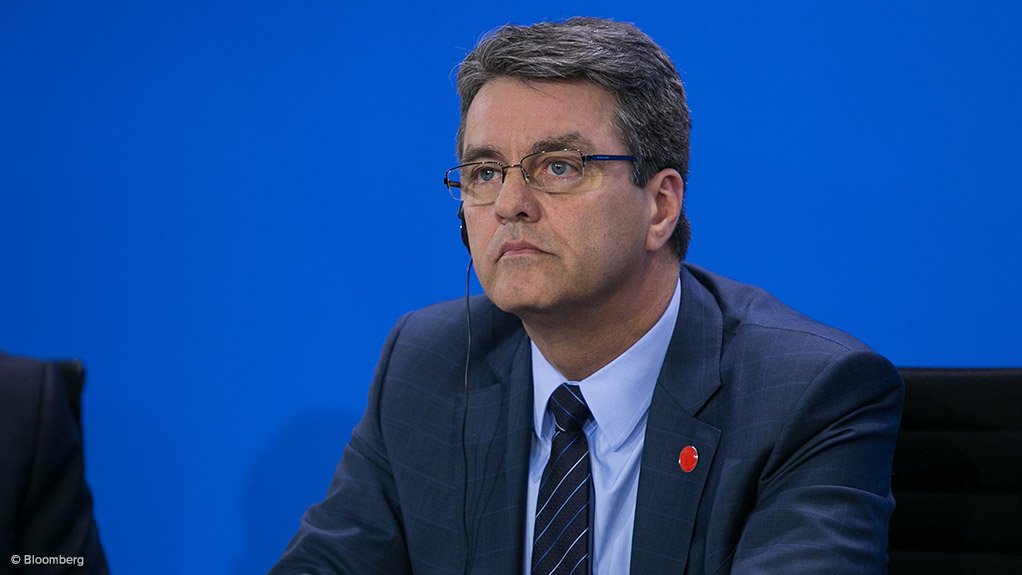The World Trade Organisation (WTO) on Thursday adopted the Bali trade reform package, putting the organisation’s negotiations back on track, WTO director-general Roberto Azevêdo said.
The 160 WTO members on Thursday took three decisions – clarifying the Bali Decision on Public Stockholding for Food Security Purposes; adopting the protocol of amendment, which formally inserted the Trade Facilitation Agreement into the WTO rulebook; and resuming the organisation’s post-Bali work.
“By agreeing these three decisions we have put ourselves back in the game. We have put our negotiating work back on track — that means all the Bali decisions: trade facilitation, public stockholding, the least developed country (LDC) issues, the decisions on agriculture, development and all of the other elements. And we have given ourselves the chance to prepare the post-Bali work programme,” said Azevêdo.
He noted that, since July this year, there had been an impasse in the implementation of the Bali issues, which had had a paralysing effect on negotiations in all areas.
The impasse had related to the political link between two of the Bali decisions — the decision on Public Stockholding for Food Security Purposes, and the Trade Facilitation Agreement; however, this had now been resolved.
In terms of the Bali Decision on Public Stockholding for Food Security Purposes, members agreed that the peace clause, which was agreed in Bali, would remain in force until a permanent solution was found, Azevêdo explained.
WTO members also agreed to make every effort to negotiate a permanent solution by December 31, 2015. This was an advance on the original target date, which was set for the eleventh Ministerial Conference in 2017.
“If no solution is reached by this new target date in December 2015, the peace clause will simply remain in place and in effect until negotiations do conclude and a permanent solution is adopted,” Azevêdo added.
Further, the WTO also adopted the protocol of amendment, which formally inserted the Trade Facilitation Agreement into the WTO rulebook.
“This clears the path for the Trade Facilitation Agreement to be implemented and come into force — with all the well-documented economic benefits that this will bring for developed and developing countries alike,” he said.
Members would now ratify the agreement, following their domestic procedures.
Azevêdo further pointed out that this decision meant that the Trade Facilitation Agreement Facility was now operational.
This facility was designed to ensure that LDCs and developing countries got the help they needed to implement the provisions of the Trade Facilitation Agreement and to reap its benefits.
“We have already received a great deal of support and interest from donors on this initiative — and have built strong partnerships with a number of organisations in support of this work, including the World Bank,” he said.
Meanwhile, the WTO also committed to resuming the organisation’s post-Bali work immediately and to engage constructively on the implementation of all the Bali ministerial decisions, including the work programme on the remaining Doha Development Agenda issues.
The WTO members also agreed that the deadline for this work programme would now be July 2015.
Azevêdo said that, during this negotiation process, the WTO had seen a renewed commitment to the mutilateral system.
“Nevertheless, I think we would all agree that we need to find an easier way of doing things. While we have seen renewed commitment to the WTO, the truth is that we must avoid repeatedly putting ourselves in this position.
“We have lost precious time since July, and it goes without saying that we can't wait another two decades to deliver further multilateral outcomes. We have to think about how we can operate in a more efficient way,” he said.
Azevêdo stated that the organisation had to make this breakthrough meaningful by seizing the opportunities for progress that it provided.
“We have just finished one journey — but now we must embark on another,” he said.
He added that he would convene a meeting with the negotiating group chairs on Friday to ask that they bring members together immediately to begin resuming work in all of the agreed areas.
“It is important that we start planning for 2015 as soon as possible. We have a new deadline for the work programme of July 2015. So we definitely don’t have any time to lose,” he said.
EMAIL THIS ARTICLE SAVE THIS ARTICLE
To subscribe email subscriptions@creamermedia.co.za or click here
To advertise email advertising@creamermedia.co.za or click here











